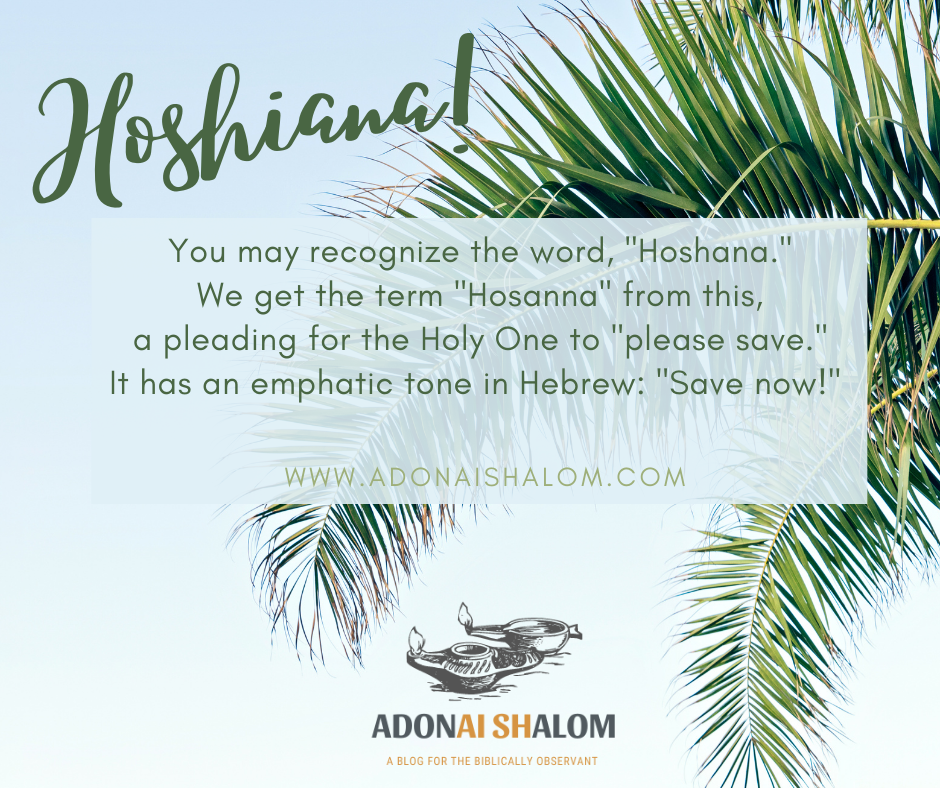The Biblical Spring Feasts
Parashat Emor (V’yikra/Leviticus 21-24)
Are you familiar with the springtime Biblical feasts?
Passover, the Feast of Unleavened Bread, the Feast of First Fruits, and the Feast of Weeks are special days outlined in the Bible.
Each of the Biblical Spring Feasts can also be called by its Hebrew term:
The Feast of Passover = Pesach
The Feast of Unleavened Bread = Chag HaMatzot
The Feast of First Fruits = Yom HaBikkurim
The Feast of Weeks = Shavu’ot
Messiah Yeshua (Jesus Christ) fulfilled the prophetic meaning of each of these Biblical spring feasts (moedim).
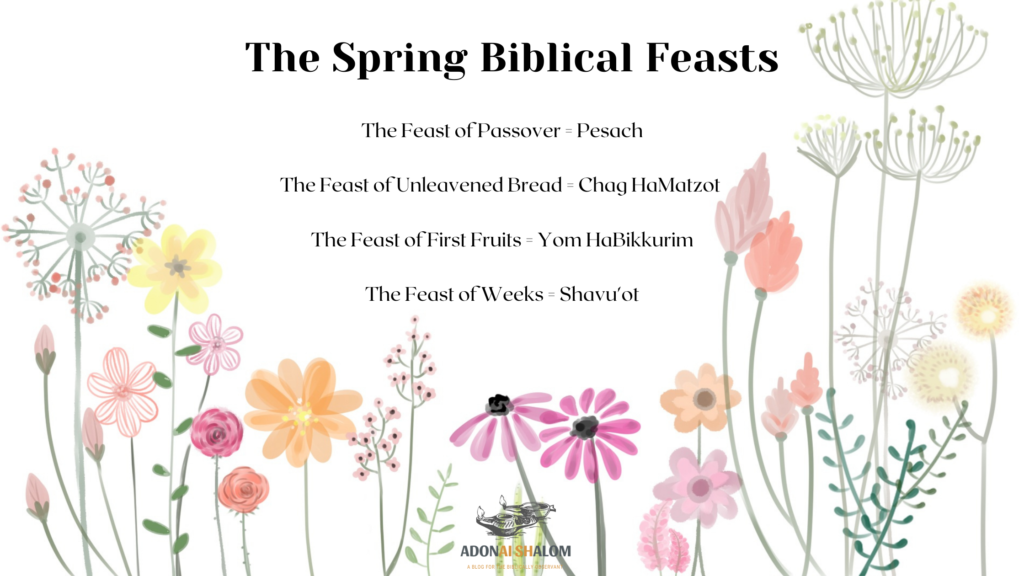
Passover and the Feast of Unleavened Bread
Perhaps your church has held a Passover Seder meal or you have tasted matzah bread at some point in your life.
Passover is so clearly mentioned in the Gospels and we know the Lamb of God came to take away the sin of the world, so most Christians have at least a basic understanding of what the Passover feast is all about. The amazing Truth of Redemption.
However, most do not realize that Passover leads right into the 7 day Feast of Unleavened Bread.
It is also common for many believers to admit they do not know much about the Feast of First Fruits or the Feast of Weeks.
No worries.
I can help you sort this out.
Before we go any further, let me reassure you, you do not need to be “Jewish” in order to celebrate the “Jewish” feasts.
Followers of Messiah, whether native Israeli or grafted-in, are now part of Israel.
Together, truly a nation under God. Israel’s history is our history. We do not compete with Israel, we do not supersede or replace Israel: we are Israel. We have been united by the blood of the Lamb and saved by His unfailing grace.
More and more Christians are learning about our Father’s established feasts!
He has prepared a banquet before you and you don’t have to wait until you get to heaven to feast and celebrate with Him.
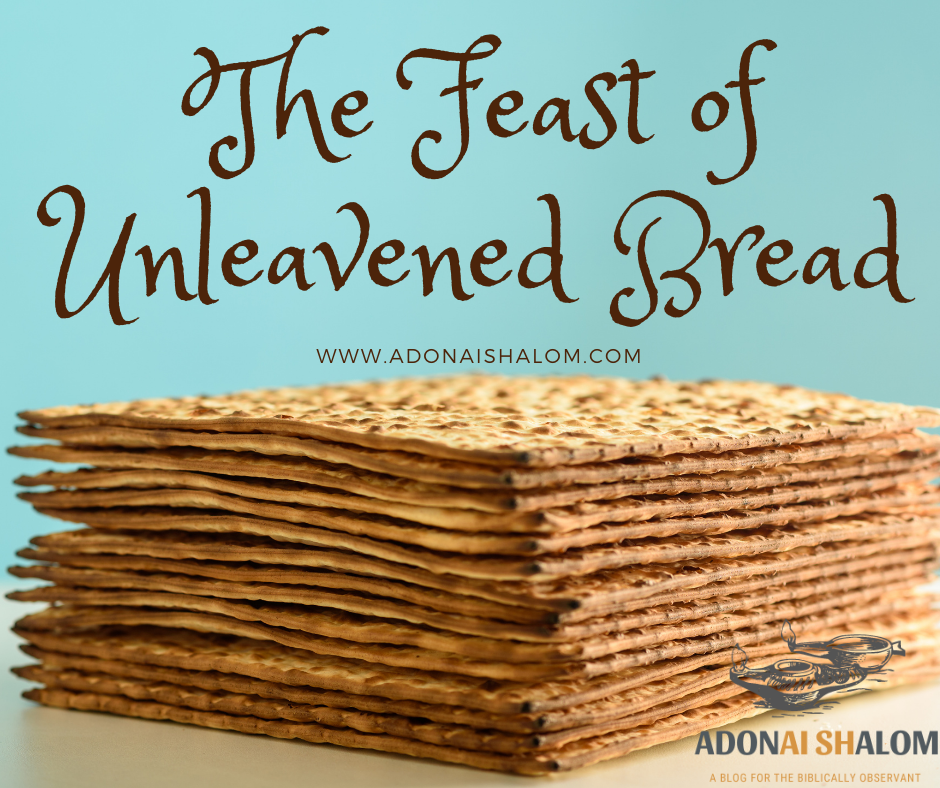
The Feast of Firstfruits
The Feast of First Fruits is about harvest. The LORD established it so that the people would bring the first and the best of their harvest. It was a feast day for this expression of worship. (Leviticus 23:9-14)
So what does this mean for us today? Most of us are not farmers. It seems a bit challenging to fully understand agriculturally-centric feasts, but we can understand the simple Gospel teaching that spiritually-speaking, the fields are white and ready for harvest (John 4:35).
This Biblical feast illustrates the victory of the Gospel in the most powerful and marvelous way possible.
You see, Passover is about freedom from death and bondage. The Feast of Unleavened Bread reminds us that He was buried and in that tomb. The Feast of Firstfruits is about the Resurrection!
“But now Messiah has been raised from the dead, the firstfruits of those who have fallen asleep.” 1 Corinthians 15:20
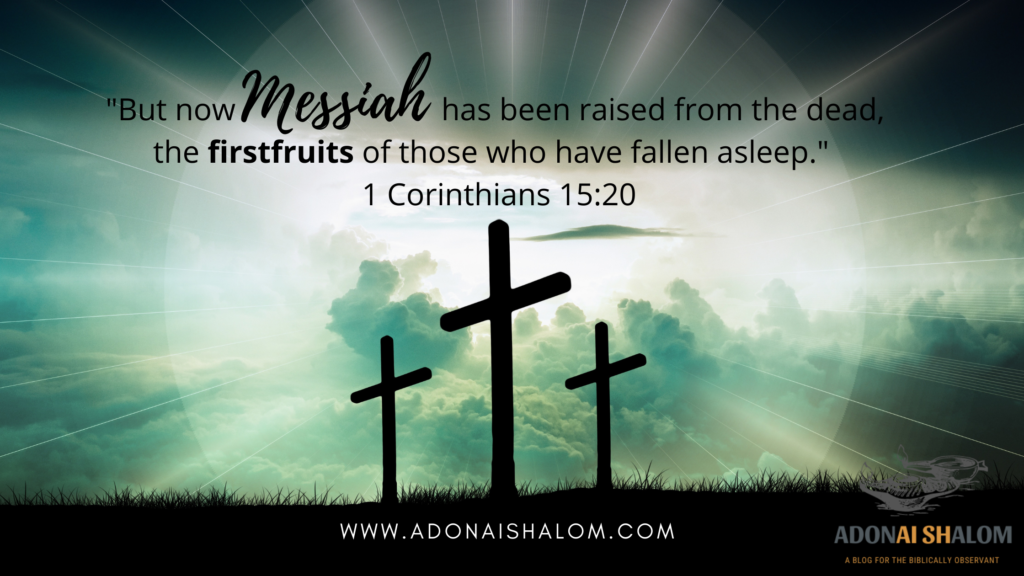
Messiah Yeshua was the first of the harvest – raised into His glorified, resurrected body. If you read about what was involved with the celebration of First Fruits, you will learn that a sheaf had to be waved before the LORD back and forth.
Waving the sheaf surely seems to represent the movement of the wind through the crops.
A mighty rushing wind.
The power of the Holy Spirit (Ruach haKodesh) breathing new life!
The Spirit of the LORD stirring up salvation!
We know that in the last days, the harvest will include people from the east and west, north and south.
So back and forth the wave offering was made: prophesying the harvest of the latter days and prophesying the Truth of Resurrection Day!
The Feast of Firstfruits is the Celebration of Resurrection Day!
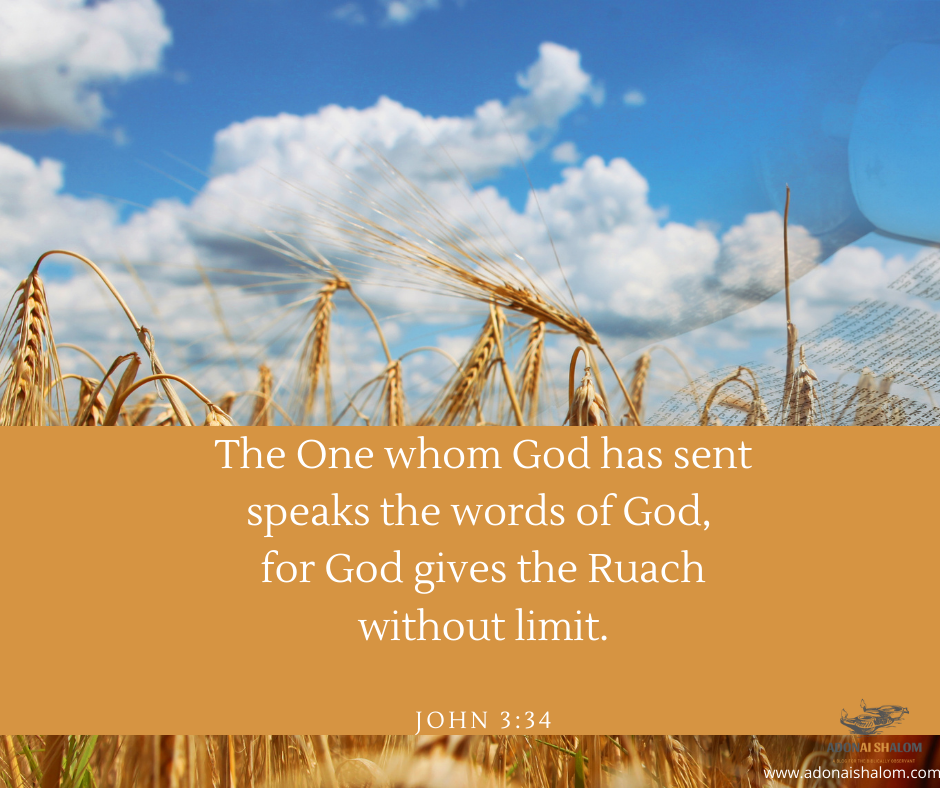
The Feast of Weeks
Speaking of the awesome power of the Holy Spirit, Acts 2:1 begins “When the Day of Pentecost had fully come . . . “
The Day of Pentecost as a holy day wasn’t something new.
Bible translators chose to translate the Hebraic term, “Shavu’ot,” with the Greek term “Pentecost.”
Ironically, there are language barriers
It is debatable as to whether those who translated were legitimately trying to help readers understand the Hebrew here or whether they were trying to obstruct it (sadly, it is plausible). Preference for Greek terms in translation led to a loss of the original meanings and intent and propelled the wide separation between the early Messianic movements and later church movements.
Before you start thinking I’m anti-Pentecost, hold it right there.
I love Pentecost. I am an ordained Pentecostal pastor. Yet, using solely the term “Pentecost” actually obscures the fullness of the meaning of the Scriptures here!
We need to become more aware of the deficiencies caused by language. (This is nothing new to us Spirit-filled believers. We know language barriers have been overcome by the amazing infilling power of the Holy Spirit!). The limitations of our vocabulary lead to slight discrepancies in doctrine and practice which over time can become huge discrepancies.
For example: I don’t know any Christians who say, “Happy Shavu’ot Sunday!”
It’s always “Pentecost Sunday” in our vocabulary! And that is ok, in the sense that this is how we understand a word in our language.
But, we are missing half of the meaning!
We know the Holy Spirit came down. However, many do not realize that the outpouring of the Holy Spirit coincided with the ongoing celebration of the Biblical feast day. The disciples present in the Upper Room literally lived the Messianic fulfillment of the feast day.
The reality is, Shavu’ot (i.e. Pentecost) has been celebrated since the days of Exodus!
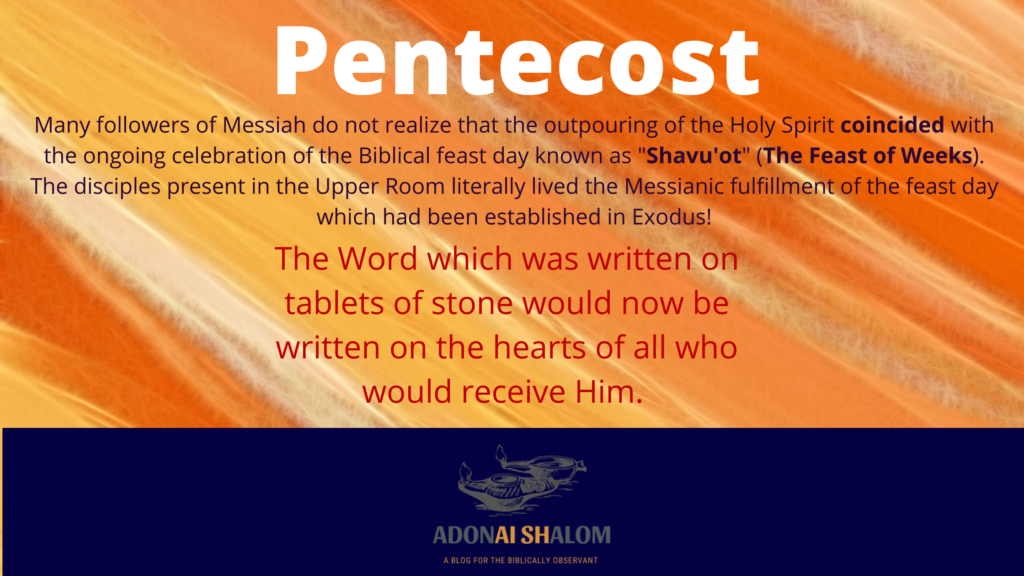
Exodus 34:22 says “You are to observe the Feast of Shavuot, which is the firstfruits of the wheat harvest, as well as the Feast of Ingathering at the turn of the year.”
It became traditional to celebrate the giving of the Torah on Shavu’ot. As you can see, the Word which was written on tablets of stone would now be written on the hearts of all who would receive Him. Now we also celebrate the giving of the Holy Spirit on Shavu’ot! The LORD never leaves us without instruction and never leaves us comfortless.
The Messianic significance of the omer count
Beginning at the Feast of First Fruits, a special omer count was to begin every year. This was a measurement used for dry goods. Each day, for 50 consecutive days after First Fruits, the day’s omer was to be counted. This had gone on for generations prior to the outpouring of the Holy Spirit on the day we know as Pentecost.
The word, “Pentecost,” is highly appropriate here because it was exactly 50 days after the Feast of First Fruits (Resurrection Day) when the Holy Spirit fell upon the gathered, praying believers and endued them with power from on high.
When the LORD Yeshua (Jesus) walked on this earth, He came to fulfill the prophecies, not to abolish them. He promised that He would send another Comforter (John 14:16, KJV) and that is exactly what He did. Every single action He took and Word He spoke correlated with His mission and He never contradicted Himself.
All of the Biblical Feast Days were established before God sent His Son. Today we are just focusing on the spring feasts, but each Biblical feast day is a part of the divinely orchestrated plan to show us the way of salvation. (If you are interested in the fall feasts, those include what is known as Yom Teruah (aka Rosh Hashanah), Yom Kippur, and Sukkot (the Feast of Tabernacles).
What shall we do?
On that same Shavu’ot day, Peter preached a Spirit-empowered sermon that resulted in 3,000 immersion baptisms.
When people felt convicted of their need for repentance, they asked, “Fellow brethren,what shall we do?” Acts 2:37 (emphasis added)
The question posed by the crowd should be the same question we still ask.
What shall we do?
And the exhortation of Peter continues to direct us:
- Repent
- Be immersed (baptized) in water
- Receive the baptism of the Holy Spirit
- Be saved from this twisted generation
Our journey of faith doesn’t end when we are baptized in water. We must seek the infilling of the Holy Spirit, who empowers us for the task of ministry.
How can we be saved from this “twisted” (some translations read, “perverted”) generation?
By doing things God’s way, not our way.
That includes surrendering our manmade traditions.
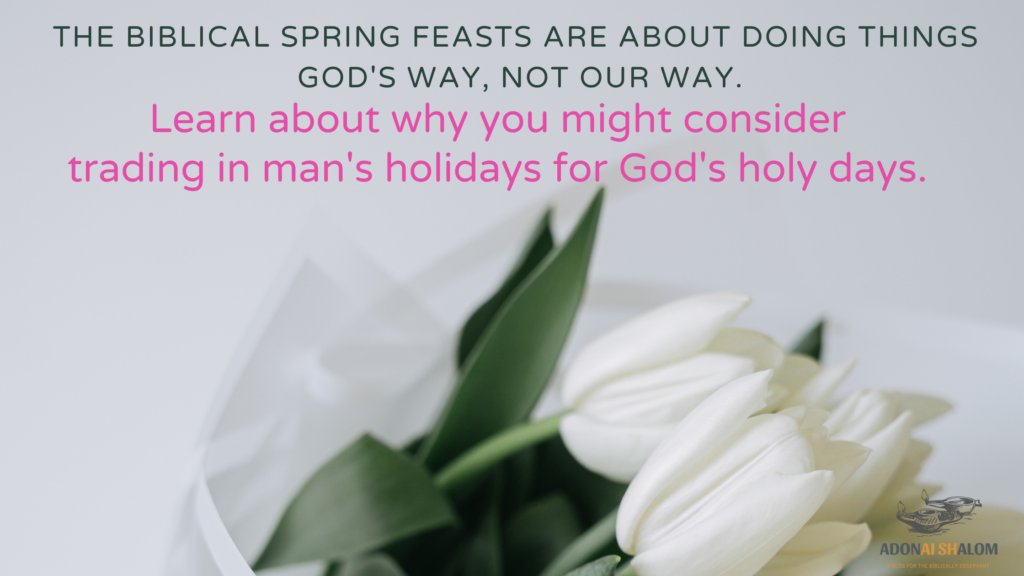
By Acts chapter 5, there was so much going on in the way of outreach and missions that the Jewish authorities became very upset. Miraculous healings, supernatural deliverances, prison doors being opened . . .
“And the high priest asked them, saying, “Did we not strictly command you not to teach in this name?
And look, you have filled Jerusalem with your doctrine, and intend to bring this Man’s blood on us!”
But Peter and the other apostles answered and said: “We ought to obey God rather than men.” Acts 5:27c-29 (emphases added)
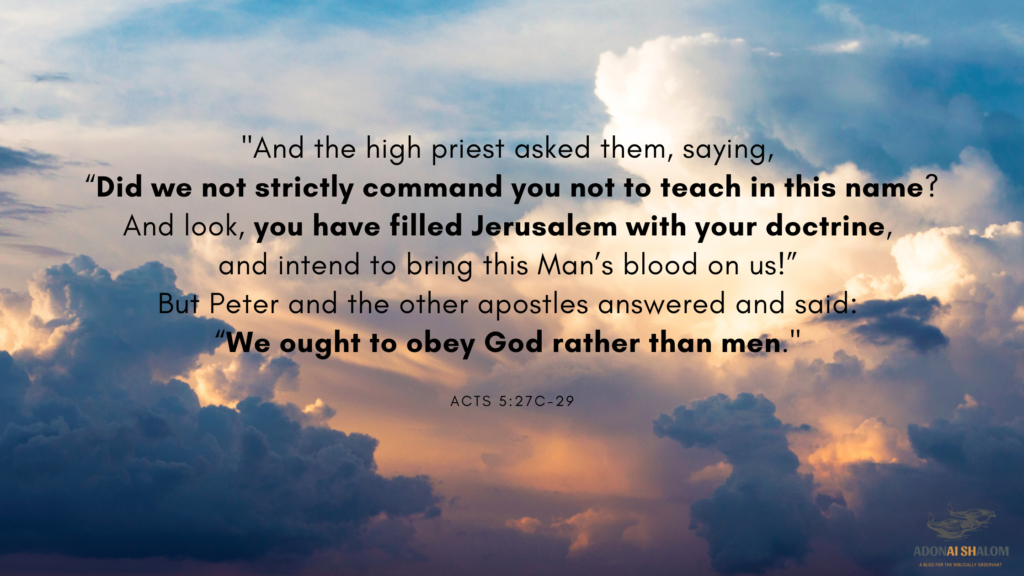
Obey God rather than men
This verse isn’t a license to stop listening to the wise people that God has placed in your path. Heed godly counsel. Submit to righteous authority.
But carefully discern what is truly godly.
If we are to obey God rather than men, let me ask you this question today.
Why continue with manmade festivities?
Why not celebrate the LORD in the way the LORD established?
Why allow the world to creep in to our faith practices?
What do the Springtime Biblical Feasts represent?
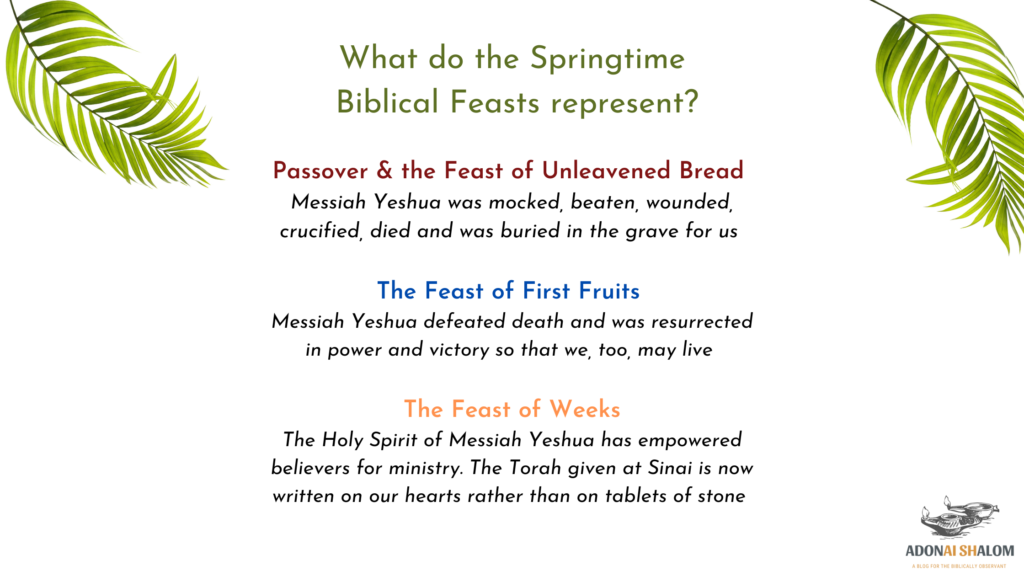
Easter, Eostre, and Ishtar
It is no secret that the word Easter has been derived from several pagan sources. Do we really need to “Christianize” these false gods?
Look at the linguistics.
We get the term, “Easter” from Eostre, an English goddess, who is likely the same personage as Ishtar, the Babylonian fertility goddess. It is no surprise then, that we see the reappropriation of fertility symbols such as eggs and rabbits in Easter celebrations.
What, then, shall we do?
Obey God rather than men!
Our Messiah Yeshua (Jesus Christ) died to free us from idolatry and sin.
We need to reject the pagan practices that have managed to invade our celebrations of our Savior’s Resurrection.
Resurrection Day exists in Scripture as the Fulfillment of the Feast of First Fruits. We should celebration Resurrection Day! But we really don’t need “Easter.”
Consider celebrating each of the Biblical spring feasts. Consider trading in man’s Lent for God’s teshuvah (time of repentance). Trade in man’s Easter for Yom HaBikkurim (the Feast of First Fruits). In the fall and winter, (I know this one will be controversial) trade in man’s Christmas for the Feast of Tabernacles (Sukkot), the most amazing celebration of the Word being made flesh and coming to dwell with us! If you decide to truly follow what Scripture says rather than what the majority of tradition has invented, you will gain so much!
If following the LORD at His Word is important to you, please comment below! If you have questions about the Biblical spring Feasts we would love to help you! And most importantly, if you have questions about the Messiah, please let us know and we would love to share the Good News with you. Please subscribe so you don’t miss any new posts! Shalom!
Related items you may enjoy:
